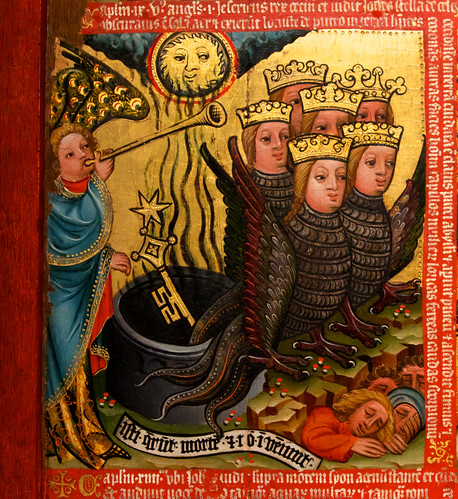We run our website the way we wished the whole internet worked: we provide high quality original content with no ads. We are funded solely by your direct support. Please consider supporting this project.
On the Language of “Revolution”
Question: The banner of your website and the thrust of much of your teaching focuses on “revolution.” While I can see a radical call in some of the sayings of Jesus, especially if he were addressing upper-middle class North Americans, I wonder if attaching revolutionary language to his teaching seems a stretch. He did not join with the Zealots of the day. He said to his captors, “Am I leading a rebellion, that you come at me with clubs and swords?” Revolutionary culture is connected with all sorts of movements, many stemming from the Enlightenment and communism that seemed to embrace ideologies of autonomy and methodologies of violence. That seems to conflict with the spirit of your own communitarian and pacifist teachings. Could you explain why you use revolutionary language?
Answer: I understand your concern about the world’s association of revolution with violence and social upheaval etc. Jesus’ kingdom certain wasn’t that. At the same time I think that the Kingdom inaugurated by Jesus was far MORE revolutionary, not less, than common examples of revolution, whether the American, French, or Russian. Everything Jesus did revolted against aspects of the culture and creation that weren’t consistent with God’s will, and thus revolted against the principalities and powers that (in a first century apocalyptic context) were believed to be behind those aspects of society and creation. And he revolted, ultimately, by not only refusing to hate his enemies, but instead to love and bless his enemies, which is the opposite of the world’s way of revolting. So I want to reclaim the most radical “revolt” word we have available and redefine it within the kingdom. This word is revolution.
The same objection has been raised about my “spiritual warfare” language, and I give the same response, since warfare language permeates the Bible, including the NT.
The Bible has a great example of using revolution/warfare language and turning it on its head to mean the opposite of what it means in the world. It’s found in the book of Revelation. John employs dozens of violent symbols from the OT and apocalyptic literature of his day and he turns them on their head to mean the opposite. [I’m in the middle of preaching a six week series on Revelation right now]. So I feel there is biblical warrant for doing the same today.
Nevertheless, you are concerned about the right things, and it just means we have to make an extra effort to be sure we are communicating the kind of revolution and warfare that is consistent with the revolution and warfare of the cross. The cross defines the revolution.
Blessings,
Greg
For more on the topic of revolution, see Greg’s book Myth of a Christian Religion: Losing Your Religion for the Beauty of a Revolution. This book introduces 12 ways that the revolution should stand against the principalities and powers of the world.
For the sermon series that was the precursor to this book, click here.
For the recent sermons from the series Rescuing Revelation where I outline how God takes revolutionary language and turns it on its head, click here.
Category: General
Tags: Enemy Love, Kingdom, Love, Non-Violence, Pacifism, Revelation, Revolution, Viva la Revolution!
Related Reading

Featured Sermon Series: Scandalous Love
The Scandalous Love series is often considered one of Greg’s and Woodland Hill’s most foundational series. In fact, it was so important that it subsequently led to the Can’t Stop the Love series. Defining the true character of God is at the heart of what ReKnew is all about, so we wanted to host…

Shane Claiborne on How Bad Theology Can Be Deadly
David D Flowers shared this video over at The Centrality and Supremacy of Jesus Christ and we thought it was worth sharing here too. Theology matters.

3 Traits of a Jesus Kind of Church
A Jesus kind of church (See an introductory post on this here) is called to represent God, just as Christ did. The church is Christ continuing to manifest the true God. Bonhoeffer put it this way, “The Church is not a religious community of worshippers of Christ but is Christ Himself who has taken form…

Listen and Learn: A First Step Toward Reconciliation
Jesus Christ is not just the Lord, Savior and Messiah of the Jews: he is the Lord, Savior and Messiah of all people. Through Christ a kingdom is being established that tears down tribal walls between races and re-unites and reconciles people together in the love God. Paul makes the point most forcefully. In Ephesians…

Podcast: Did Revelation Evolve or did God Evolve?
Greg discusses the revolution of God. http://traffic.libsyn.com/askgregboyd/Episode_0387.mp3

Corrective Love
drp via Compfight Kathy Escobar posted the other day about providing “corrective experiences” to those who have been hurt in the past. How many of us have approached Christians with our wounds and have been offered more of the same instead of the love and acceptance we’re longing for? How beautiful it would be if…

